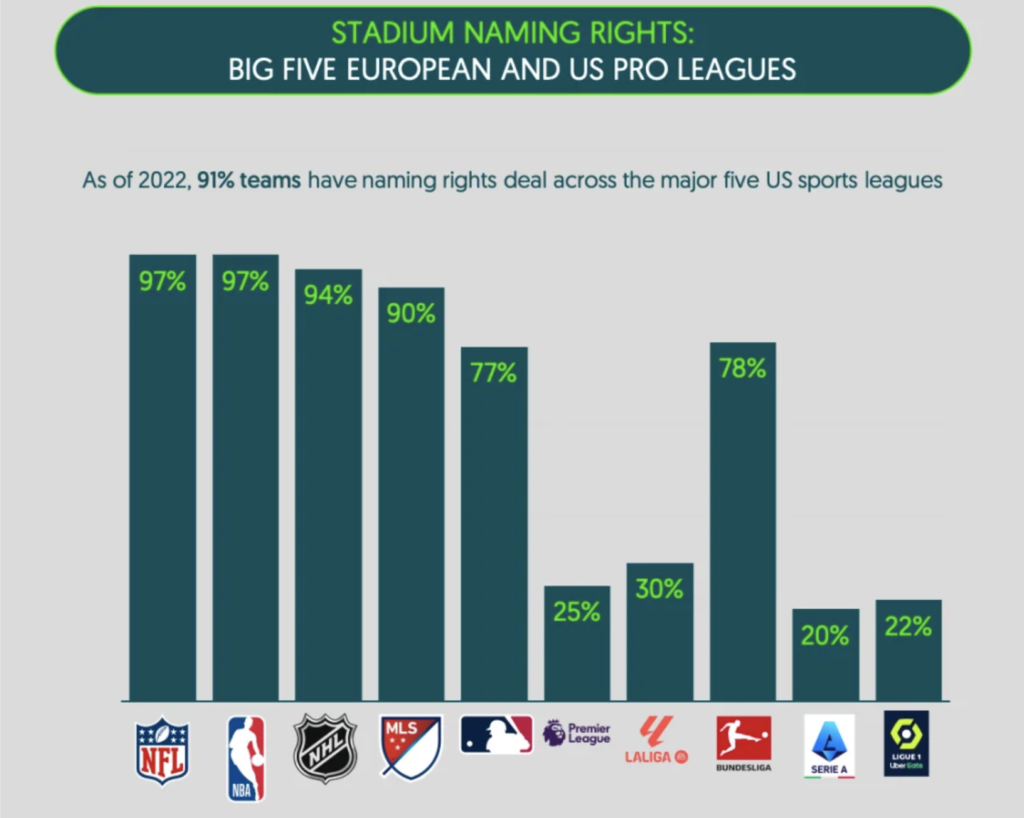A New Era for Historic Stadiums
Naming rights for football stadiums have become one of the hottest topics in sports finance, especially in Europe. Many clubs with long, proud histories are now looking at these deals as a way to boost income and stay competitive, even if it means changing the name of a cherished home. In the United States, nearly every stadium bears a corporate name, but in European football, the idea is still finding its footing, often sparking heated debates among passionate fans.
From Tradition to Transformation
In Europe, many clubs see their stadium as a symbol of identity, with names that carry decades of history and tradition. For instance, the legendary Camp Nou in Barcelona is now known as the Spotify Camp Nou, after the club signed a sponsorship deal with the music streaming service. While this change has brought in much-needed revenue to help cover high player salaries and financial struggles, it has also stirred mixed emotions among supporters who see the name as part of the club’s soul. Similarly, Atletico Madrid’s agreement with Ryadh Air to rename their Metroplolitano Stadium highlights how clubs are increasingly willing to take this step when the financial benefits are too good to pass up.

Source: Kroll
Learning from Around the Globe
On the other side of the Atlantic, the American model is very different. In the NFL and other American sports, naming rights have been a part of the game for over a century. Take the example of the Crypto.com Arena in Los Angeles, a deal worth hundreds of millions of dollars that has become completely normal in the American sports landscape. Fans in the U.S. are generally used to their teams playing in venues with corporate names, partly because many American stadiums are newer and were built with commercial partnerships in mind. This difference in attitude shows how deeply rooted cultural traditions are in European football, where fans often feel that their stadium’s name is a part of their community’s heritage.
Balancing Heritage and Revenue
Despite these cultural differences, European clubs are starting to see naming rights as a crucial way to balance growing expenses. Many teams are investing in state-of-the-art stadium upgrades and new facilities, and the money from naming rights can help finance these projects. For example, clubs in the Bundesliga have been quick to embrace these deals, with around 78% of German top-flight teams having corporate names on their stadiums. This contrasts with the English Premier League, where only a small percentage of clubs have taken the plunge. The financial gap means that European clubs are now under pressure to find new revenue streams, and naming rights are emerging as a valuable option… even if it means some fans have to get used to a new name.

Source: GlobalData
The Future of Football Finance
Naming rights deals are more than just a modern marketing tool; they are vital lifelines that can fuel stadium renovations, boost player recruitment, and support overall club sustainability. As European clubs continue to seek innovative ways to balance tradition with the demands of modern football, naming rights could become an integral part of the strategy to secure long-term success. With revenue helping to drive improvements on and off the pitch, even the most traditional clubs might eventually embrace a new name, ensuring they remain competitive in an ever-evolving sporting landscape.


